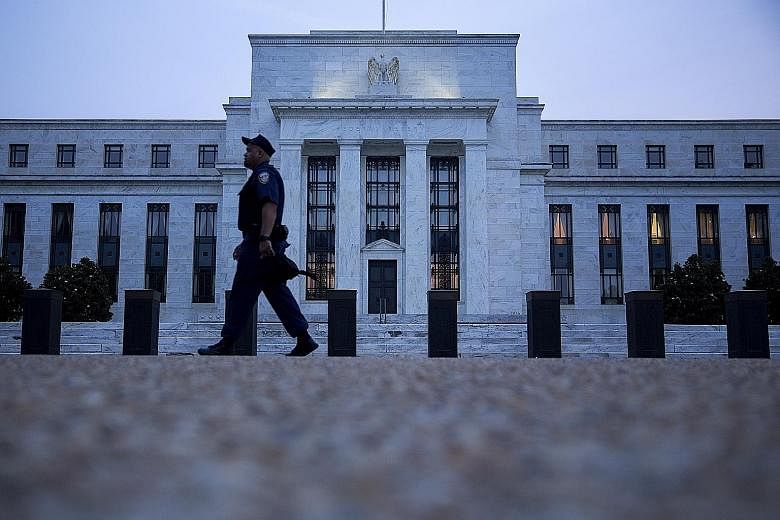ANKARA • Finance ministers and central bank chiefs from the world's top 20 economies, called the G-20, met yesterday hoping to calm the nerves of markets rattled by China's slowing performance and the prospect of a United States Federal Reserve rate hike.
The two-day meeting takes place at a time of alarming indicators from the global economy, with the latest poor industrial orders from Europe's powerhouse, Germany.
Slower growth in China and rising market volatility have increased the risks to the global economy, the International Monetary Fund (IMF) warned ahead of the G-20 meeting. It cited a mix of potential dangers such as depreciating emerging market currencies and tumbling commodity prices.
The Fed is also coming under pressure from emerging markets not to raise rates too soon as turmoil in China threatens global economic growth. But the G-20 will not publicly call for any delay in a rate rise, even as the finance and bank chiefs were pressing for more on China's plans to tackle its slowdown, delegates told Reuters.
"The focus is going to be on how to deal with the instability and how to get growth going again," Canadian Finance Minister Joe Oliver said.
Emerging market economies are concerned that a US rate hike would pile on extra pressure.
"We cannot live all the time on easy money," Luxembourg Finance Minister Pierre Gramegna, whose country holds the rotating presidency of the European Union, said.
"This G-20 comes at a very good time because it gives the Fed an opportunity to gauge all the elements at stake," he said.
A move being examined at the Ankara meetings is a proposal from financial stability experts to adopt a two-stage approach for introducing Total Loss-Absorption Capacity (TLAC) buffers for big banks, a G-20 source said.
The buffer is a new layer of debt that big banks like Goldman Sachs and Deutsche Bank AG must issue to write down in a crisis and bolster their capital situation.
The proposal, on which a final decision is unlikely before a G-20 summit in November, would see the introduction of a buffer of 16 per cent of a bank's risk-weighted assets from 2019 and 20 per cent from 2022, the source said.
The US had pushed for 20 per cent while some in Europe argued for 16 per cent on the grounds that their banks were still recapitalising after the financial crisis.
Delegates said the G-20 was also not expected to pronounce on China's desire to have its yuan currency included in the IMF's Special Drawing Rights basket of currencies, but the issue was discussed in the corridors.
"China has moved in the direction in currency and monetary policy... that is necessary if they want to achieve the goal of getting China into the IMF currency basket," said German Finance Minister Wolfgang Schaeuble, welcoming Beijing's near 2 per cent yuan devaluation last month.
Bundesbank chief Jens Weidmann said he is open to discussion on including the yuan in the IMF basket.
REUTERS, AGENCE FRANCE-PRESSE
•For more on G-20, go to www.straitstimes.com/business

